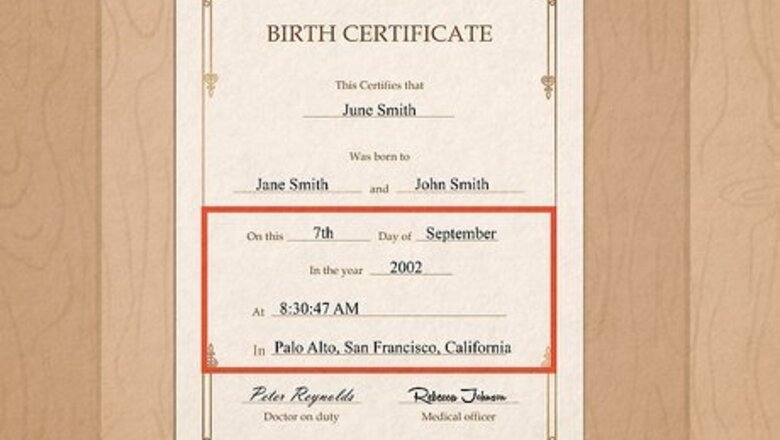
views
Calculating Your Planet Positions
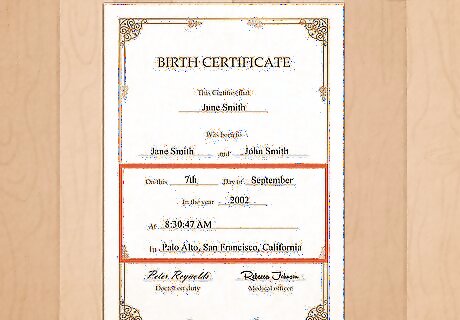
Gather information on the exact place and time of your birth. Using your birth certificate is your best bet to get the right information. The planets can move quickly, so the more specific you can be with your location and time (down to the minute!) of birth, the more accurate your birth chart will be. If you don’t have access to your birth certificate, try asking your family to see if someone knows what time you were born. You can also enter noon as a placeholder time, though this might skew some of your results.
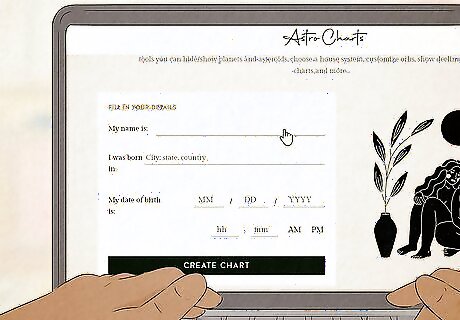
Choose a Western birth chart calculator for the simplest approach. There are a few different free online calculators you can use in order to produce a natal chart. They should all produce the same results, so choose whichever one you like the most. Try out one of these options: For a pleasant interface: https://astro-charts.com/ For a detailed report to accompany your birth chart: https://astro.cafeastrology.com/natal.php For a no-frills, straightforward option: https://www.astro.com/cgi/chart.cgi Some smartphone apps have become popular as well, including Co-star and Time Passages. Western astrology, also called tropical astrology, is the kind of astrology most common outside of India. Western astrology uses the position of the sun from when astrology first crossed into ancient Persia. Both Western and Eastern (sidereal) astrology have their own large bases of practitioners, so use whichever system appeals to you the most.
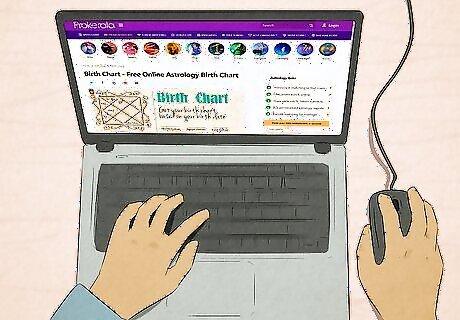
Try a Eastern sidereal calculator for a deeper dive into planetary cycles. There are several options available on the Internet that are free-of-charge. Since the sidereal methodology is the same for each calculator, they should all provide you with the same result. Try one of these sites: For a simple interface that can give you a chart in North, South, and East Indian formats: https://www.prokerala.com/astrology/birth-chart/ For detailed interpretations and readings of your chart: https://www.onlinejyotish.com/free-astrology/free-janmakundali.php For a straightforward, simple option: https://www.vedicastrology.us.com/index.php/about-mickey/about-vedic-astrology/calculate-your-vedic-astrology-chart Eastern astrology, also known as sidereal astrology, is the kind of astrology most commonly found in India. Unlike tropical astrology, sidereal astrology factors in the shifting of the planets over time due to equinoxes and other astronomical phenomena. As a result, planet positions in Eastern astrology differ from those produced by Western methodologies.
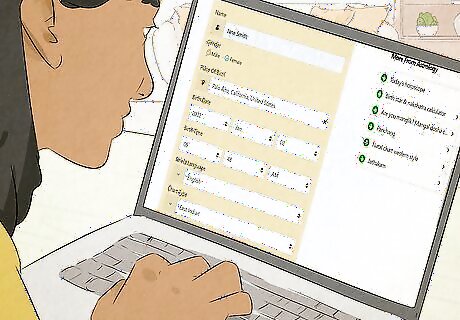
Enter your time and place of birth into the calculator. The calculator will create your birth chart, which will show you the positions of all of your planets using either Western or Eastern astrology methods.
Understanding Your Planet Positions
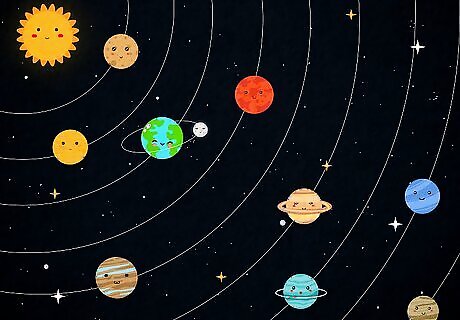
Study what each planet means. In both Western and Eastern astrology, the planets and stars each have certain effects over our lives. There’s plenty of depth to what each planet means, but here’s a brief overview to start: The Sun represents the core of who you are. It rules over your self, your ego, your identity, and your power to meet the challenges of your life. The Moon rules over your emotions. It symbolizes your mother’s role in your life, and your soul itself. Mercury is the planet of communication. It is associated with our ability to think quickly, to read, to write, and to speak. It also covers our relationships with our siblings and any short trips we might take. Venus is the planet of love. It rules over luxury, attraction, and pleasure. Our desire for refined things is associated with Venus. Mars is the planet of ambition. This is a fiery planet, one that thrives in the realms of ambition and competition. Sex, violence, and confidence are all ruled over by Mars. Jupiter is the planet of fortune. This planet is the most philosophical of all, and rules over higher education, optimism, and leisure. It’s generally a very beneficial planet, and brings with it a lot of luck. Saturn is the planet of karma. It is the disciplinarian and teacher of the horoscope, and rules over tradition, order, and wisdom. Saturn’s role is to teach us to live better through the trials we face in life. Uranus is the planet of rebellion. It rules over innovation, humanitarianism, revolution, and technology. Uranus takes 84 years to complete its trip around the zodiac, so it tends to rule over a whole generation, rather than change its position between each person’s chart. Neptune is the planet of illusion. It rules over dreams, mysteries, and also the showier side of life, like fashion, glamor, and show business. Like Uranus, it tends to occupy the same position in the chart of a whole generation. Pluto is the planet of power. It rules over some of the less seemly sides of life, like death, kidnapping, coercion, viruses, and crime. Like Uranus and Neptune, it tends to have the same effect on a whole generation.

Learn what each house signifies. Your horoscope is divided into 12 houses, each of which represents a different domain of life. The interaction between planets and the houses they are in is a key part of astrology. We’ll briefly go over the houses here: The 1st House, or The House of Self, addresses our personality, approach to life, and what makes us unique. It also is the house of our early childhood. The 2nd House, or The House of Possessions, is about what we own, especially our material wealth. How we view money is influenced by this house, as well as our income, debt, and financial assets. The 3rd House, or The House of Communication, takes charge of our intelligence. This house leverages communication and quick-thinking in order to take on challenges in life. The 4th House, or The House of Home, is the domain of our family, ancestors, and domestic life. Our traditions, family members, and history are all located within this house. The 5th House, or The House of Pleasure, speaks to procreation and children, but also the creation of art and culture. Romance and taking risks for the sake of pleasure are all part of this house’s domain. The 6th House, or The House of Health, addresses sickness, but also our ability to meet challenges in our lives. This house is associated with our ability to work and perform service even through adversity. The 7th House, or The House of Partnership, governs our ability to live and work in conjunction with another. Marriage belongs to this house, but so do partnerships in business or creative work. The 8th House, or The House of Sex, is also the house of death, and even rebirth. This is a house dedicated to transformation and the major life events that change the way we live, such as coming to terms with our sexuality, the ends of relationships, and death. The 9th House, or The House of Philosophy, is one of discovery. This house’s domain is over abstract thinking, higher education, and the search for meaning and truth. The 10th House, or The House of Status, rules over our achievements in life. Our careers, ambitions, motivations, and success are all within this house’s domain. The 10th house is concerned with the public eye, and how we are received by society. The 11th House, or The House of Friendship, is about our relationship with groups. Friends, organizations, clubs, and professional associations all fall within this house. The 12th House, or The House of the Unconscious, deals with our karma. The effects of our past actions end up in this house, where we decide how to make sense of our lives. This house is the final one in the zodiac because it captures all the results from the previous houses.
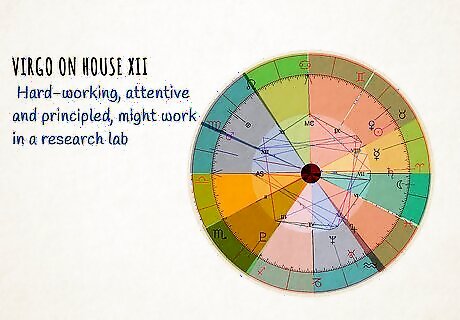
Interpret the relationship between your planets and houses. You can interpret your horoscope by working out how your planets are affected by the houses they’re in. There are some additional factors that can be important here, such as thinking about what signs the planets are in, the location of the planets within their houses, and if you’re working with Western or Eastern astrology. But you can still draw some conclusions even without these factors, so take a look at some of the following examples: If you have Jupiter, the planet of fortune, in the 10th house, or the House of Status, it’s generally a good sign of having a prosperous career. If you have the Moon, the “planet” of emotions, in the first house, or the House of Self, you’re generally a person who is quite sensitive, and perhaps empathetic. If you have Mars, the planet of ambition, in the 7th house, or the House of Partnership, you’re likely a very sexual, intense, and perhaps argumentative partner. If you have Mercury, the planet of communication, in the 3rd house, or the House of Communication, you’re exceptionally adept with words, and likely find it extremely easy to communicate with others. If you have Saturn, the planet of karma, in the 2nd house, or the House of Possessions, you likely feel a lot of anxiety over having enough wealth. You may have experienced financial difficulties, and spent a lot of time working through them.
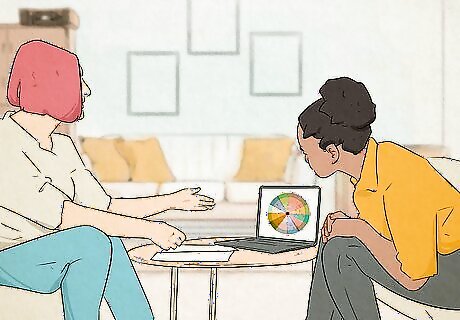
Contact a Western or Eastern astrologer to make more sense of your chart. An astrologer can help explain your chart to you, and guide you through other factors in your chart, such as retrograde planets, transits, and the interactions between planets, houses, and signs. You can also do your own research. Astrology has always been popular, but it’s become even more accessible with the Internet. Do some digging online to hone your astrological skills and know-how. Interpretations of retrograde planets, transits, and the interactions between planets, houses, and signs differ significantly between Eastern and Western astrological methods. If you’re interested, it’s a good idea to dip your toes into both fields in order to see which one appeals to you most.












Comments
0 comment